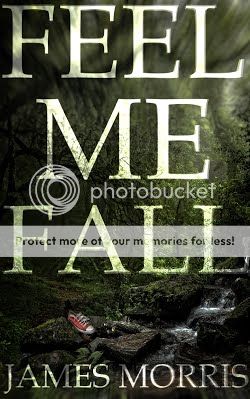Date Published: 05/02/2017
Secrets and survival in the Amazon
Emily Duran is the sole survivor of a plane crash that left her and her teenage friends stranded and alone in the jungles of the Amazon. Lost and losing hope, they struggle against the elements, and each other. With their familiar pecking order no longer in place, a new order emerges, filled with power struggles, betrayals, secrets and lies. Emily must explain why she’s the last left alive.
But can she carry the burden of the past?
Discover the gripping new adventure novel that explores who we are when no one is watching, and how far we’ll go in order to survive.
Chapter One
I have tried so hard to forget, but memory is a stubborn thing. Memories linger no matter what I do. They’re there all the time—and worse. Even my dreams aren’t safe. I have vicious nightmares, and they’re real—too real—and suddenly I’m back there. I can’t will them away, I can’t squeeze them away, and the more I try, the more they burrow in my head. I want to cut open my skull and dig my fingers into my brain and just pull them out.
I press the Call Nurse button.
This place, this room; it’s no better than a white coffin. Sometimes I feel like the walls are closing in on me and I have to remind myself nothing’s moving. Nothing at all.
Breathe, I tell myself. Just breathe.
A nurse enters. She’s got skin the color of rich walnut. She says, “It’s late, you should be asleep.”
“I can’t.” She tilts her head, knowing it’s a lie. The truth is I don’t want to. “Can I have some coffee?”
“You’ve got to sleep sometime, honey.” She walks over and gently grasps my bandaged hand. “Do you want me to stay with you a while?”
Usually my mom is with me, but she must’ve had to run home. Reduced to a little girl, I nod.
I close my eyes, but my mind runs and runs. Tubes and fluids enter my body, but there’s nothing to stop the anxiety. My heart pounds and sometimes I fear I’m on the cusp of crossing into whatever lies on the other side of sane. Being in the hospital makes it harder. The white walls and sick people only remind me that I am so far from normal. My mom’s apartment in Los Angeles is less than five miles away, but it might as well be a million.
The nurse, staff, doctors, everyone; they all know me for one thing. The thing that will define me for the rest of my life. I am a survivor. The only survivor of Air Brazil, the plane that crashed in the Amazon jungle carrying 134 passengers; 37 of them students, teachers, and chaperones from Riverdale Academy High. I used to hear about plane crashes and wondered how the victims felt in the seconds before impact, wondered what it was like to know you were about to die.
Now I know. And I’d give anything not to.
I knew those people from school. Every. Single. One.
They aren’t faceless names. They are people and they are dead.
The counselor didn’t help, either. She told me not to feel guilty. Survivor’s guilt, she called it. She warned I could expect to be angry and sad. I could expect to be confused. I wanted to tell her I was angry and sad and confused long before I got onto that plane.
My counselor told me to write my story down. By writing I could make sense of all that happened. I keep thinking if I remember everything the way I need to that the memories will fade away. That I can accept what happened. I can accept that I survived and everyone else died.
The laptop on my nightstand is waiting for me. I’m scared to touch it.
###
I was dead to the world and when I came to I was drowning. Water gushed into my mouth and I was tumbling, flailing, not knowing what end was up or down. I heard the sounds of screaming and the roaring of water and then nothingness. Coming up for air, I held something, something rectangular. The seat cushion I was holding kept me afloat. I was in a river and I didn’t know why. I kicked and kicked and it made no difference. I never believed in God, an all-powerful being that allowed so many horrible things to happen, but as I saw the rocks up ahead, I prayed.
The current sped faster, churning like boiling water and I thought I was going to die.
I was 17 and I was going to die.
All the time wasted. All the things I never got to do.
I had one thought over and over: I don’t want to die. Someone else, but not me.
I held onto that seat cushion for dear life and plunged into the rapids. I was a human rag doll. The torrent sucked me into a watery hell and I couldn’t breathe; my eyes shut, mouth shut, face tight against the murk, willing everything to stop. I couldn’t breathe. I started to panic.
Someone else, but not me.
I needed air, my body screamed for it and I opened my mouth about to take in water when I bubbled up to the surface and gasped. As quickly as I was brought above, I was taken under again. I slammed against the rocks and buried my face deeper into the cushion. I saw nothing, heard nothing, and imagined I was in a womb. I could only wait for the terror to pass. There was no outlet; my fear was so deep and tangible I couldn’t scream. It felt like an actual substance that enveloped my body, my brain, my very being. I receded further and further within myself, a dark hole, my entire body a taut muscle.
Suddenly, I took a shot to the head and saw stars. A high-pitched squeal rang in my ears. I fought the growing sensation of darkness that threatened to overcome me, but I knew to give in meant death. I was tempted. So, so tempted. I forced my eyes open and saw the water, the dark water and wondered in that emptiness if I hadn’t died already.
My prayer must’ve been heard.
The water calmed and I was spit out near a bend. I realized I had to give up the cushion, my lifeline—it was holding me back. I let go, cursing myself as it floated away and I swam, giving everything I had. My body had nothing left but I commanded it, willed it, to swim. As I approached the shore, my shoes finally touched bottom and I heaved myself onto land.
I don’t know how long I lay there catching my breath. But there is no greater feeling of security than the sensation of the earth beneath your stomach, hands grabbing dirt. The scent of decay and wet leaves smelled like a bouquet. All this time I’d taken the ground beneath me for granted. Now I was thankful for this place to rest.
I was soaked. My jeans pressed against me, my hair drenched, my socks squished against my feet. I didn’t understand. I had left on a flight from Los Angeles with a layover in Panama City and then on to Asuncion, Paraguay for a year-end class trip. We were traveling as an inter-disciplinary trip for history, international relations, foreign language and biology. We were going to have the trip of a lifetime.
Then it hit me, a delayed reaction: I almost drowned. I almost died. My body seized and I was overwhelmed. I cried; I didn’t even know why or for what, but I sobbed on that little stretch of dirt. I heaved, gasping for breath. Every inhale was a wheeze, and I caught myself hitting the ground, my hands balled into tight fists, pounding and pounding.
Moments passed and I cried myself empty. I told myself: get up. You have to get up.
I placed my hands in the dirt to help me stand and looked around thinking: What is this place? There was green everywhere, too much green, and a river the width of three football fields in front of me. The air was heavy, a physical pressure against my skin. I was in the jungle, a tangled web of trees and totally foreign. Any other time, I might’ve been amazed by its majesty, only now I felt small. Trees towered behind me, the river flowed in front, and I was trapped.
It was then I felt the weight of my cross-body bag. I’d been wearing it the whole time. Not very heavy, I managed to unhook it and was about to open the zipper when I heard screams.
Floating down the river were more people. I wasn’t alone! A ripple of joy overtook me until I saw their faces reflecting what I sensed my own might look like—bruised, bleeding, and utterly thrashed.
Exhausted, I shouted my voice hoarse, “Over here!” I waved my hands over my head. “You can do it,” I encouraged. “Almost there!”
Some didn’t move at all. They floated, faces down, rolling through the current, lost in the rapids, disappearing for far too long. Those were the ones who didn’t thrash. Others were swept in the rapids, their screams barely heard over the rushing water only to be silenced on the other end. I was watching people die. The bodies were like a slow leak, trickling down the river a few at a time, and yet almost none of them emerged alive on the other side of the rocks. I couldn’t save them. They were too far away.
Someone else, but not me.
I didn’t mean like this.
Then I saw Viv and my heart nearly stopped.
She struggled in the water, past the rapids, a bobber about to go under. She was never athletic even though she was stick thin. Water gurgled from her mouth and she barely moved. I couldn’t bear to lose her. I wouldn’t allow it. I was terrified of my own exhaustion, but I jumped into the water and found a strength I never knew. I swam out to her. Her head dipped under the water and I would not let that be the last time I saw my best friend alive. I grasped her flotation cushion and then headed back to shore.
She looked at me, dazed. “Emily, it’s you.”
“Yes, it’s me.” I could barely contain my relief.
The sun shone over my head, reflecting in the ripples. “You look like an angel.”
I knew Vivian was out of it. “Stop talking now. Just swim. We’re going to be okay.”
I reached the shore for a second time and pulled her up with me. Once on land, she pulled me into a hug and nothing had ever felt better. Always shorter than me, her face burrowed into my chest and I felt I was protecting an abandoned baby bird. Her inky dark hair, usually so pretty was now plastered to her head, her make-up had washed away, and she was just this tiny thing. Her whole body shivered. “Tell me it’s a dream, tell me it’s a dream….”
“I wish it was, Viv.” I would’ve stayed hugging her if not for the other people in need of help.
Nico, Viv’s immature boyfriend, splashed ashore, his glasses gone, his nose bloody, red streaks smeared across his face. He was panting and heaved over, and I thought he might throw up. We had a history, but there was no time for irritation. Any familiar face was cause for celebration. He seemed surprised to see me. “You made it.”
He then eased Viv from my arms and into his.
Further down the river there was movement. It was Derek, all limbs and urgency, his face pockmarked with acne and not a hint of stubble. He splashed onto shore, his fingers digging into sand and he kissed the earth.
Twenty yards away, Ryan Wray followed. One of his prosthetic legs was missing—he’d lost his legs below the knee after contracting a rare case of meningitis a few years earlier—and he crab-walked onto land, his one pant leg empty, wet, and flat. He wasn’t alone. He helped guide Mean Molly with him. She was far from mean then, almost drowned, flustered and frantic. Once she got out of the water, she toppled in the mud, curling into a fetal position.
I stayed where I was as Ryan, Molly and Derek staggered along the shore, finally meeting up with us.
There was no time to rest or reflect. The river scattered more survivors along the shore. I pulled in a man and stopped in alarm when I saw that one of his arms had snapped off. I gently laid him down and he didn’t even notice until he turned his head. He said with an eerie calm, “That looks painful.” I recognized him from the plane. He’d sat a few aisles in front of me and slammed back drinks whenever we hit a patch of turbulence. On land, he didn’t even scream. His face was pale and blood spurted in rhythmic pulses from below his shoulder.
“What do we do?” Nico said.
I had no clue. I only knew we needed to do something. “Derek, your belt!”
Derek looked from his perch on the mud and shook his head. I couldn’t believe it.
“Derek, give me your belt! He’s losing too much blood.”
Derek, in shock or otherwise, didn’t move.
I searched for anything that would act as a tourniquet, but my efforts were in vain. The man’s blood had dwindled to a dribble, leaving a red puddle in the mud.
Another woman emerged from the water like a swamp creature, stumbling. We sat her down and she gazed at the water. She had a head injury like mine. Blood ran from her scalp and there was a small spot where her hair had been chafed away. It wasn’t a wound. It was a hole. Looking closer, I could see something I didn’t want to—her skull and what lay within. Her eyelids fluttered and she swayed, falling unconscious. I tried to grab her, but gravity took her to the ground. I nudged her once, twice; she didn’t respond. “Wake up,” I pleaded. “Please wake up.” She never moved again.
I wanted to scream. I wanted to run from this place.
It seemed like a Halloween parade. They had to be in costume or using special effects; the injuries and deaths couldn’t be real.
They were all too real.
One man drifted to shore, his face down in the water, his wispy gray hair splayed out on the water’s surface. We grabbed ahold of him and he was heavy, far too heavy for his slender body. We saw why. The flotation device had kept him afloat, but he’d drowned somewhere along the way.
The last man we helped suffered so many burns his face was charred and etched in pain—I had the horrible thought of grill marks on steak. Once on land he jumped back into the water. Maybe the water had soothed him. I tried to reach out and grab him. “Let me help you!” But he was hysterical, too fast, and we watched as he floated away. I tell myself that he would’ve probably died anyway.
It’s terrible that I only knew them as The Woman, The Old Man, The Man Without an Arm and The Burned Man. Somewhere people knew their names, their histories, secrets and loves. Many of them rested at our feet, their chests still, mouths open. We were among the dead, and I found that we all, consciously or not, distanced ourselves from the horror.
About the Author

James Morris is a former television writer who now works in digital media. When not writing, you can find him scoping out the latest sushi spot, watching House Hunters Renovation, or trying new recipes in the kitchen. He lives with his wife and dog in Los Angeles.









